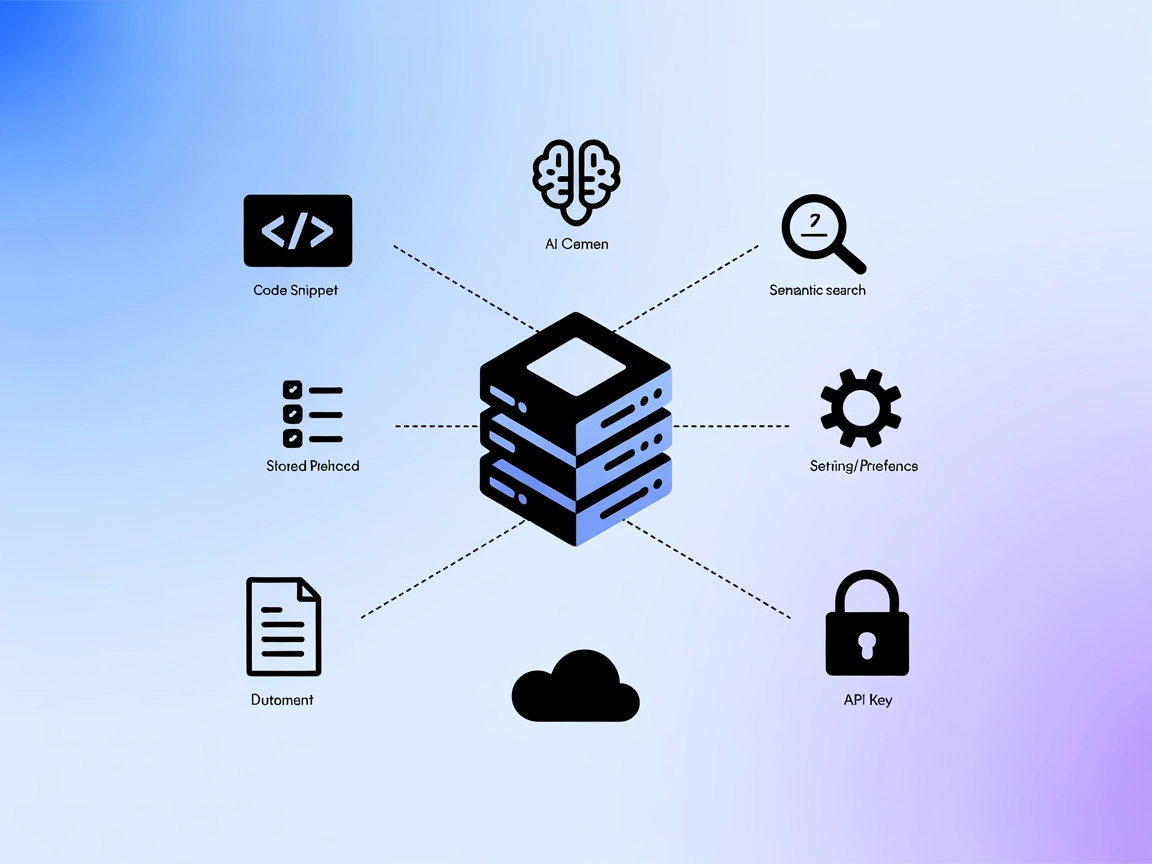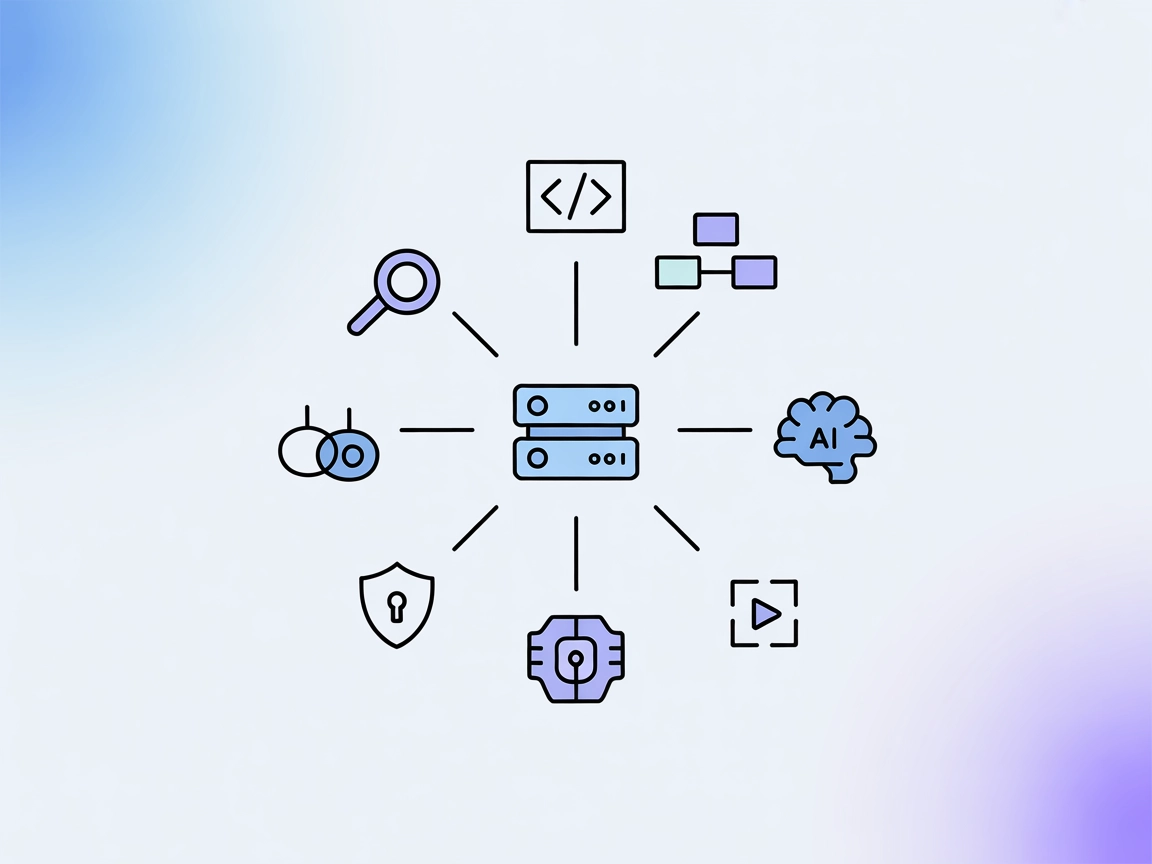
Model Context Protocol (MCP) Server
The Model Context Protocol (MCP) Server bridges AI assistants with external data sources, APIs, and services, enabling streamlined integration of complex workfl...

mem0 MCP Server powers FlowHunt with code snippet storage, semantic search, and robust development documentation, streamlining AI-driven coding workflows.
FlowHunt provides an additional security layer between your internal systems and AI tools, giving you granular control over which tools are accessible from your MCP servers. MCP servers hosted in our infrastructure can be seamlessly integrated with FlowHunt's chatbot as well as popular AI platforms like ChatGPT, Claude, and various AI editors.
The mem0 MCP (Model Context Protocol) Server is designed to manage coding preferences efficiently by connecting AI assistants with a structured system for storing, retrieving, and searching code snippets and related development context. Acting as a middleware, it allows AI clients to interact with external data—such as code implementations, setup instructions, documentation, and best practices—through standardized tools and endpoints. Its main role is to streamline development workflows by enabling features like semantic search, persistent storage of coding guidelines, and retrieval of comprehensive programming patterns, which can be integrated into AI-powered IDEs or coding agents. This enhances both individual and team productivity by making best practices and reusable code easily accessible.
No prompt templates are mentioned in the repository or documentation.
No explicit MCP resources are listed in the repository or documentation.
uv installed on your system..env file with your MEM0 API key.{
"mcpServers": {
"mem0-mcp": {
"command": "uv",
"args": ["run", "main.py"],
"env": {
"MEM0_API_KEY": "${MEM0_API_KEY}"
}
}
}
}
Note: Secure your API key using environment variables, as shown in the env section above.
{
"mcpServers": {
"mem0-mcp": {
"command": "uv",
"args": ["run", "main.py"],
"env": {
"MEM0_API_KEY": "${MEM0_API_KEY}"
}
}
}
}
Note: Use environment variables for sensitive data.
.env file.uv run main.py.http://0.0.0.0:8080/sse).JSON Configuration Example:
{
"mcpServers": {
"mem0-mcp": {
"command": "uv",
"args": ["run", "main.py"],
"env": {
"MEM0_API_KEY": "${MEM0_API_KEY}"
}
}
}
}
Note: Store your API key securely using environment variables.
.env file.{
"mcpServers": {
"mem0-mcp": {
"command": "uv",
"args": ["run", "main.py"],
"env": {
"MEM0_API_KEY": "${MEM0_API_KEY}"
}
}
}
}
Note: Use environment variables for API key management.
Using MCP in FlowHunt
To integrate MCP servers into your FlowHunt workflow, start by adding the MCP component to your flow and connecting it to your AI agent:

Click on the MCP component to open the configuration panel. In the system MCP configuration section, insert your MCP server details using this JSON format:
{
"mem0-mcp": {
"transport": "streamable_http",
"url": "https://yourmcpserver.example/pathtothemcp/url"
}
}
Once configured, the AI agent is now able to use this MCP as a tool with access to all its functions and capabilities. Remember to change “mem0-mcp” to whatever the actual name of your MCP server is and replace the URL with your own MCP server URL.
| Section | Availability | Details/Notes |
|---|---|---|
| Overview | ✅ | Brief explanation available in README.md |
| List of Prompts | ⛔ | No prompt templates found |
| List of Resources | ⛔ | No explicit MCP resources listed |
| List of Tools | ✅ | add_coding_preference, get_all_coding_preferences, search_coding_preferences |
| Securing API Keys | ✅ | Uses .env file and recommends environment variables in JSON examples |
| Sampling Support (less important in evaluation) | ⛔ | Not mentioned |
Based on the available information, mem0-mcp provides clear tool definitions and setup instructions but lacks explicit prompt templates and resource definitions, and does not document advanced MCP features like roots or sampling. As a result, it is functional but basic in terms of protocol completeness.
| Has a LICENSE | ⛔ (no LICENSE found) |
|---|---|
| Has at least one tool | ✅ |
| Number of Forks | 56 |
| Number of Stars | 339 |
The mem0 MCP Server is a middleware that enables AI assistants to store, search, and retrieve code snippets, documentation, and development best practices through standardized tools and endpoints. It streamlines workflows by providing persistent storage and semantic search capabilities for coding preferences.
mem0 MCP offers three main tools: add_coding_preference (stores code and context), get_all_coding_preferences (retrieves all entries), and search_coding_preferences (performs semantic search across stored data).
You should store your MEM0 API key using environment variables in your `.env` file and reference them in your MCP server configuration, as shown in the setup examples.
Yes, you can connect mem0 MCP to FlowHunt by adding the MCP component to your flow, configuring it with your mem0 MCP server details, and enabling the AI agent to access its tools.
mem0 MCP is used for persistent storage of coding preferences, semantic code search, team knowledge sharing, integration with AI-powered IDEs, and as a technical documentation reference for LLMs and coding agents.
Streamline your coding workflows and enable advanced AI-powered code search, storage, and documentation with mem0 MCP Server.

The Model Context Protocol (MCP) Server bridges AI assistants with external data sources, APIs, and services, enabling streamlined integration of complex workfl...

The ModelContextProtocol (MCP) Server acts as a bridge between AI agents and external data sources, APIs, and services, enabling FlowHunt users to build context...

The CodeLogic MCP Server connects FlowHunt and AI programming assistants to CodeLogic’s detailed software dependency data, enabling advanced code analysis, visu...
Cookie Consent
We use cookies to enhance your browsing experience and analyze our traffic. See our privacy policy.